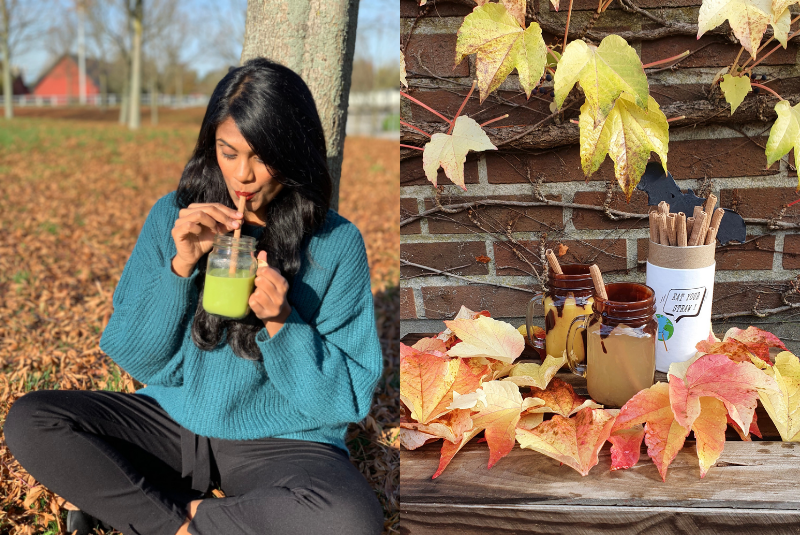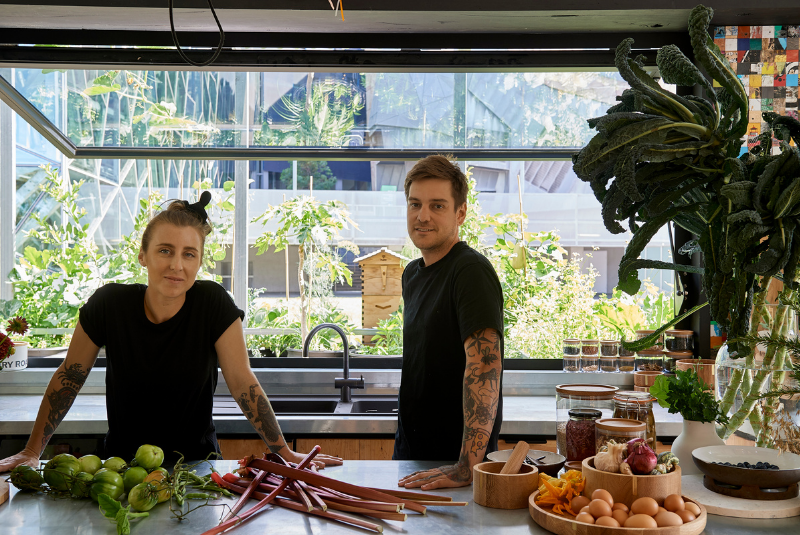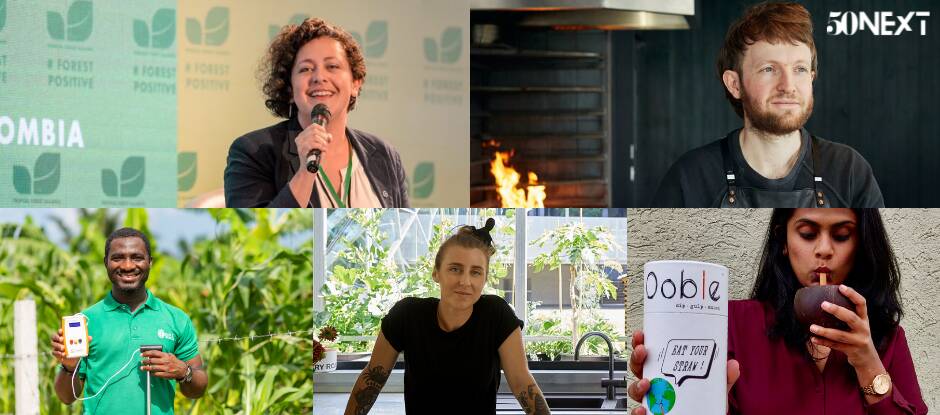A month after global heads of state gathered in Glasgow, UK, for the United Nations Climate Change Conference known as COP26, 50 Best asks the trailblazers of the food and drink world to share their thoughts on the health of the planet, and provide inspiration on how to build a better future. Read on for a series of open letters to the world from five members of the 50 Next Class of 2021 where they are speaking directly about what we can all do to harness a better ecological future
Divya Mohan, Lund, Sweden
Entrepreneurial Creatives
Divya Mohan is the founder of Ooble, a company that produces 100% plant-based and edible straws
“It’s just one straw”. “It’s just one meal”. “I am just one person, what is the big deal?”
I have always wondered if I can make an impact, if my actions alone really make a difference compared to so many other factors overburdening our planet. I have asked myself what is the point of carrying my own grocery bag when most people around me continue to use single-use plastic bags. I have argued with myself whether eating less meat was even worth it if I couldn’t build up my willpower to go vegan.
Finally, instead of wondering, asking and arguing, I decided to just do it. Each small conscious change I made led me to new learning and helped me implement new actions. The more I learned, the more I could share with my circle and build a network of people who all made small yet significant strides towards being kinder to the planet, in turn sharing this with their circle.
“It’s just one straw”. “It’s just one meal”. “All the small steps together will make our earth heal”.
Jo Barrett, Melbourne, Australia
Hospitality Pioneers
Jo Barrett and her partner, Matt Stone, work with Future Food System to promote growing food without large-scale agriculture
We are witnessing the world change more rapidly than ever before. It’s daunting, however the most exciting thing about this is our potential as individuals to effect positive change just by the way we eat. Reconnecting with our food system, taking the time to grow, prepare and eat food will drastically decide how both our planet and our communities will thrive. We need to remember we play a role in the ecosystem; we are not above or below it; we are a part of it.
Something as simple as growing one plant to eat has the power to open minds and bring awareness to the inputs, time and energy that go into growing our food. This awareness will help individuals make informed choices about where their food comes from, how it’s grown and what time of year it’s grown.
We begin to question and realise how damaging and out of control food production has become. We have whatever we want whenever we want it, or the opposite – people don’t have access to healthy food, it's expensive and void of nutrients due to poor farming practices. People get sick and it becomes a strain. Ultimately, we will get to a point where we have to change how we live.
The best part for us is that if we act now, this change can be positive and delicious.
Isaac Sesi, Kumasi, Ghana
Tech Disruptors
Sesi Technologies, headed by Isaac Sesi, helps farmers across Africa optimise their harvests
The threat of climate change to the sustainability of global food systems has never been greater. Each day we hear about floods, drought, insect attacks and other threats to our food security, and it’s easy to have a grim outlook on our future.
But I see the resilience of the farmers we work with, who still go into the field every day to work, hopeful that the rains will come. I see food traders in the markets, joyfully encouraging shoppers to buy their fresh vegetables, and it gives me hope that all is not lost.
In our company Sesi Technologies, we contribute to creating a positive future for our planet by empowering African farmers with technologies that help them post-harvest reduce losses, thereby helping to reduce agriculture’s contribution to greenhouse gas emissions.
You may not own a company, but you can contribute to saving the planet in your own way. Whether by choosing to finish your dinner instead of throwing the leftovers away or by choosing to ride your bicycle to work rather than drive every day, these seemingly small actions have a positive ripple effect on our planet. Together we can save our planet – one small act at a time.
Douglas McMaster, London, UK
Hospitality Pioneers
London-based McMaster creates plates from recycled plastic bags at his restaurant, Silo
With a problem like waste, it’s natural to look closely and see the finer details.
When you step back and see the bigger picture – why waste exists and where it comes from – you can see the patterns rather than the details. It’s not always a pretty perspective, but it’s a crucial one.
When you step back and look at the last 200 years, you see that we have gone from a decentralised farm-to-table system to a centralised farm-to-factory system. These patterns correlate with a number of other patterns, such as pollution, food intolerance, man-made diseases, a rise in global warming, degradation of soil fertility, decreased biodiversity and exhaustion of fossil fuels.
Seeing information through patterns makes the cause stick out like a sore thumb. The correlation between industrialism and nature’s demise is crystal clear.
While the patterns reveal our destruction, they also reveal the infancy of our destructive behaviour. Like a child learning to walk, it’s just a matter of time until we find our balance. In a thousand years from now we might consider this an ecological trip, growing pains on the path to Valhalla.
This excerpt is entitled ‘Perspective is a beautiful thing’ and was first published in Silo: The Zero Waste Blueprint by Douglas McMaster.
Bibi La Luz Gonzalez, Guatemala City, Guatemala
Trailblazing Activists
La Luz Gonzalez's non-profit, Eat Better Wa’ik, fights against malnutrition in Guatemala
Ever wonder how, together, food and climate connect with you emotionally? What do you consider essential in life, in living? What is the air you breathe – or are you breathing excessive toxic gases? What about the breast milk you drink in those first six months that nourishes babies so beautifully, or the fruit and veg you eat, grown from healthy soils and never-ending forests; stepping away from malnutrition, highly processed foods and commodity-driven deforestation? Nature is wrapped in wisdom, not plastic. We must listen to, and respect, the seasons. Water gives unseen life.
Dive further, get out of your comfort zone. Be bold, be creative. Relate to food and climate through your own preferences. Close your eyes. Let your imagination take you to that natural scenery your feet and hands are touching; sense that smell and air, and the foods you will find there to keep you happy. Got it? Now go ahead and protect that sacred space.
Inspired by the 50 Next Class of 2021? Head to 50 Next’s website to check out the full list of 50 future-shapers, and stay tuned to 50 Best’s Instagram, Facebook, Twitter and YouTube channels for the reveal of the Class of 2022 in February.

